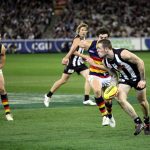Federal Government Set to Criminalise Revenge Porn

The Federal Government has called for public submissions on developing tougher criminal and civil penalties for people who share or post sexually explicit photos of others without consent.
The proposal brings federal “revenge porn” legislation a step closer. Public submissions are open until the end of July, and the government hopes to introduce a new Bill by the end of the year.
The issue
A report by the RMIT and Monash University titled “Not Just ‘Revenge Pornography’: Australians’ Experiences of Image-Based Abuse” suggests that one in five Australians have been affected by revenge porn – also known as image-based abuse – where intimate images are published without permission.
The most common form of abuse was the taking of sexual or nude images without consent (20 per cent), followed by distributing images without consent (11 per cent) and threatening to share images (9 per cent).
Meanwhile, complaints about revenge porn to the Office of the Children’s eSafety Commissioner (OCeSC) have risen from 24 in 2015/16, to 335 in the last nine months – a 1,300% rise.
The survey also outlined the damaging psychological effect on victims, with those experiencing “sextortion” frequently developing acute anxiety and symptoms of depression.
Chief researcher for the RMIT/Monash report, Dr Nicola Henry, remarked, “Images are being used to control, abuse, and humiliate people in ways that go well beyond the relationship-gone-sour scenario.”
80% of victims reported high levels of psychological distress, depression and anxiety disorder. Almost half said they feared for their safety.
Existing laws
There are currently no Commonwealth laws that specifically prohibit revenge porn.
There are state laws in Victoria and South Australia that criminalise the distribution of an “intimate” or “invasive” image without consent, and the making of threats to distribute such images.
It has been suggested that existing federal telecommunications laws such as “using a carriage service to menace, harass or cause offence” (Section 474.17 of the Criminal Code) be broadened to cover image-based abuse.
The Commonwealth Director of Public Prosecutions’ submission to a senate inquiry on revenge porn found that, “There are limitations on existing Commonwealth laws to adequately deal with ‘revenge porn’ conduct,” calling for the widening of such laws or the introduction of new laws.
In New South Wales
Former NSW attorney-general, Gabrielle Upton, announced in September last year that the government would seek to introduce state legislation to criminalise “the distribution of intimate or sexually explicit images without consent”. She also proposed civil penalties for serious invasions of privacy.
The government has moved to introduce state legislation, by way of the Crimes Amendment (Intimate Images) Bill.
“The maximum jail sentence will be three years and a fine of $11,000”, current attorney-general Mark Speakman said. Courts will be given power to order that material to be taken down and not republished.
Commonwealth government promises
“We have listened to victims and law enforcement agencies, and it is clear that in the first instance what victims want is for these images to be taken down as quickly as possible,” said the Minister for Women, Michaelia Cash.
“By also penalising perpetrators and the sites which host this content, we are sending a strong message that this kind of behaviour will not be tolerated.”
Communications Minister, Mitch Fifield, says it’s important for a “strong and consistent” approach across the country.
Criticism by the opposition
In February last year, a Senate committee recommended that revenge porn become a federal crime, and that a national agency be established to police the inappropriate sharing of images.
The Federal Opposition has criticised the 15 month delay in taking action, noting that MPs Terri Butler and Tim Watts introduced a private member’s Bill in September 2015.
“We know revenge porn is a problem, we know that it is extensively used to humiliate and target former partners,” deputy Opposition leader Tanya Plibersek remarked.
“It’s very possible to take legislative action now, if the Government wished to do so. There’s really no excuse for another delay.”







